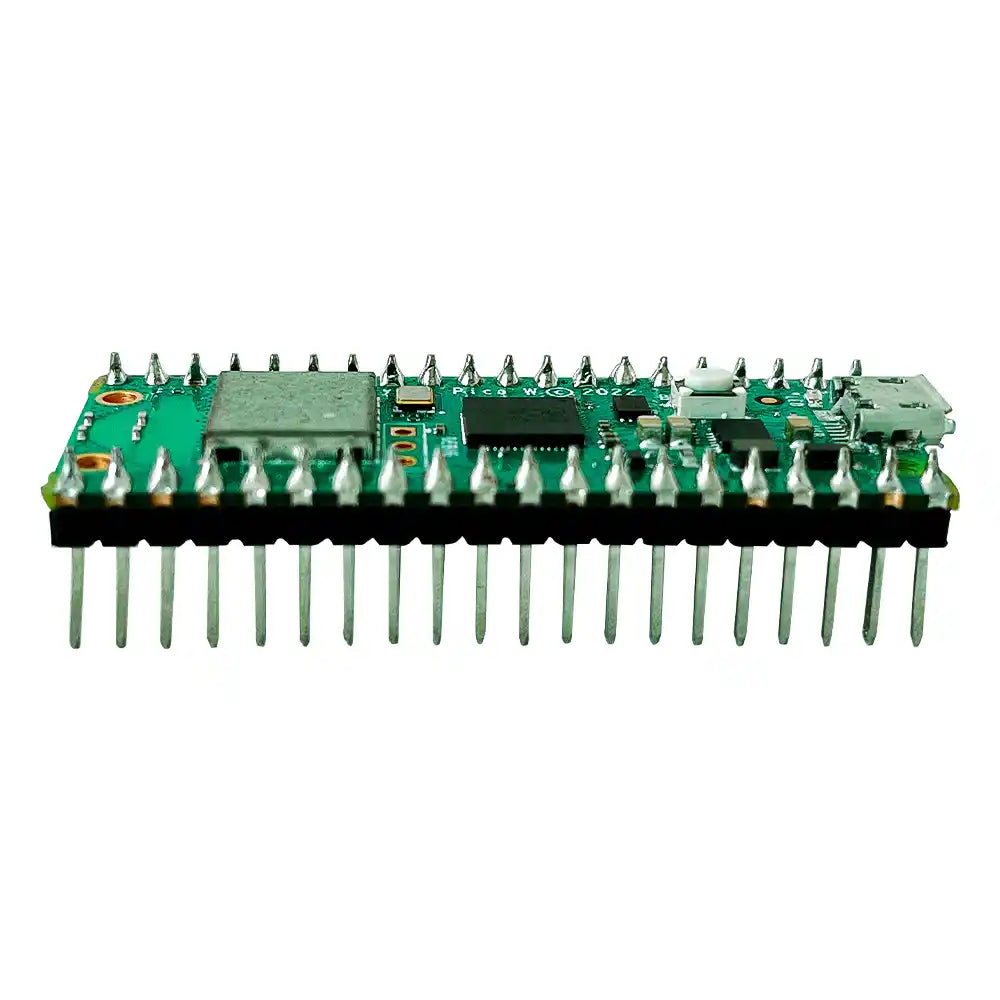





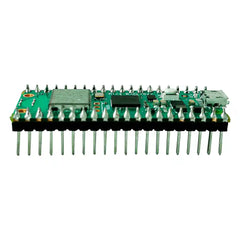
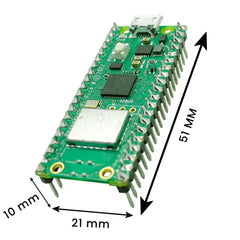
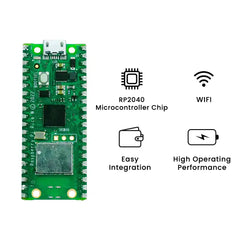
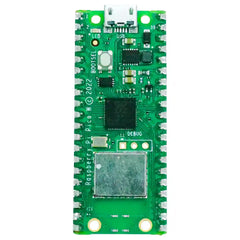


- Choosing a selection results in a full page refresh.





Couldn't load pickup availability
I've tried several times to cancel this order and when they did finally ship it, it never was delivered. The customer service email doesn't even work and they don't respond to the contact us page either. Never buying from here again.
Usb points to com3 rb pico w is on com2.
How can i point usb to com2??
The raspberry p pico w is a decent device for beginners like me, but what really stands out is how quickly and efficiently it was delivered.
Ordered my pico W and it was here before I knew it... easy to get started and even easier to love the service I received.
My raspberry pi pico W H came in perfect condition, and the delivery speed? Unmatched. It’s nice when things just work.
Raspberry Pi Pico W H is an enhanced version of the original Raspberry Pi Pico, a small ( only 6 gr.) , affordable, and versatile microcontroller board. Introduced by the Raspberry Pi Foundation, the Pico W H adds wireless networking capabilities to its feature set, distinguishing it from its predecessor. It incorporates a 2.4 GHz Wi-Fi module, specifically the Infineon CYW43439 chip, enabling Wi-Fi 4 (802.11n) connectivity. This integration allows the Raspberry Pi Pico W to connect to wireless networks, making it ideal for IoT (Internet of Things) projects and applications that require remote data transfer, control, or monitoring. With its low cost, compact design, and flexible programming options, the Pico W is designed to be accessible for hobbyists, educators, and professionals alike, aiming to provide a platform for learning, experimentation, and developing innovative embedded systems.

| Feature | Raspberry Pi Pico W | Raspberry Pi 4 | Arduino |
|---|---|---|---|
| CPU | RP2040 (Dual-core Arm Cortex-M0+) | Broadcom BCM2711, Quad-core Cortex-A72 (ARM v8) | Depends on the model (e.g., ATmega328 for Arduino Uno) |
| RAM | 264 KB | 2GB, 4GB, or 8GB LPDDR4-3200 SDRAM (depending on model) | 2 KB (ATmega328) |
| Storage | None (external flash storage support) | MicroSD card slot for operating system and data storage | 32 KB (ATmega328, with 0.5 KB used for bootloader) |
| GPIO Pins | 26 multi-function GPIO pins | 40-pin GPIO header | 14 digital input/output pins (6 can be used as PWM outputs), 6 analog inputs |
| Wireless Connectivity | 2.4 GHz 802.11b/g/n Wi-Fi | Dual-band 802.11ac wireless LAN (5.0 GHz and 2.4 GHz) and Bluetooth 5.0 | Varies by model (e.g., None for Arduino Uno, but available for Arduino boards with WiFi/Bluetooth like Arduino Nano 33 IoT) |
| Power Requirements | 1.8V to 5.5V via on-board regulator | 5V via USB-C or GPIO header | 5V via USB or external power supply |
Processor:
Wireless Connectivity Feature:
Memory:
Connectivity Features:
Power Management:
Programming:
GPIO Pins:
Communication Interfaces:
Timing and Temperature Sensor:
Floating Point Library:
Programmable I/O (PIO) State Machines:
Thanks for subscribing!
This email has been registered!

Edit Option
Back In Stock Notification
Compare
| Product | SKU | Rating | Description | Collection | Availability | Product Type | Other Details |
|---|